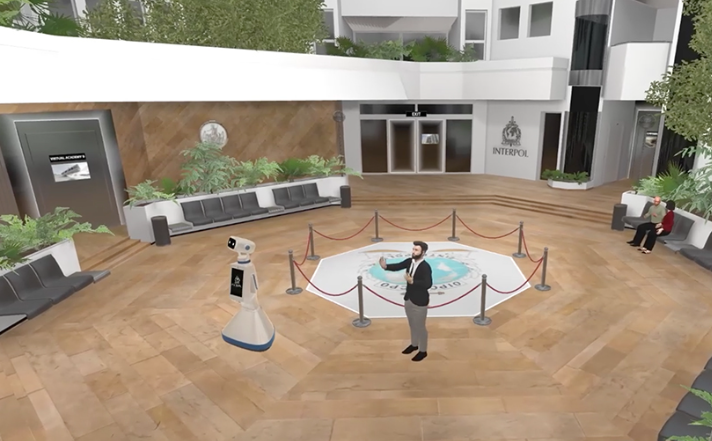During the 90th INTERPOL General Assembly in New Delhi, the global criminal police organization unveiled its first-ever metaverse experience, built specifically for law enforcement throughout the world.
The INTERPOL Metaverse allows users to tour a virtual replica of the INTERPOL General Secretariat headquarters in Lyon, France, removing any geographical or physical boundaries, interact with other officers using their avatars, and even take part in immersive training courses in forensic investigation and other policing capabilities.
INTERPOL’s entry into the metaverse is more than just a digitalization strategy; it is also an attempt to safeguard communities from crime, which, according to one of its Global Crime Trend reports, has migrated significantly online.
Cybercriminals have already established their presence on the Web3, with social engineering schemes, violent extremism, and disinformation all being major concerns.
In this regard, the Metaverse offers several advantages to law enforcement, particularly in terms of remote work, networking, gathering and storing evidence from crime scenes, and providing training.
As an example, INTERPOL’s Capacity Building and Training Directorate hosted a Metaverse classroom demonstration to teach about travel document verification and passenger screening. Following the lesson, students were teleported to a virtual airport, where they practiced their new skills at a simulated border crossing.
“For many, the Metaverse seems to herald an abstract future, but the issues it raises are those that have always motivated INTERPOL – supporting our member countries to fight crime and making the world, virtual or not, safer for those who inhabit it,” said INTERPOL Secretary General Jürgen Stock.


